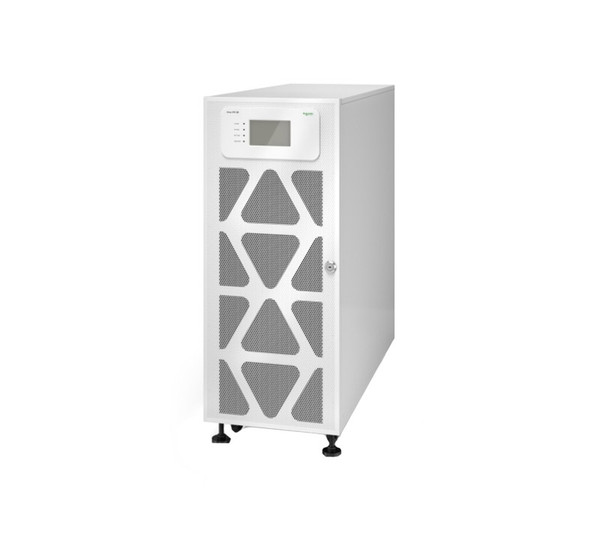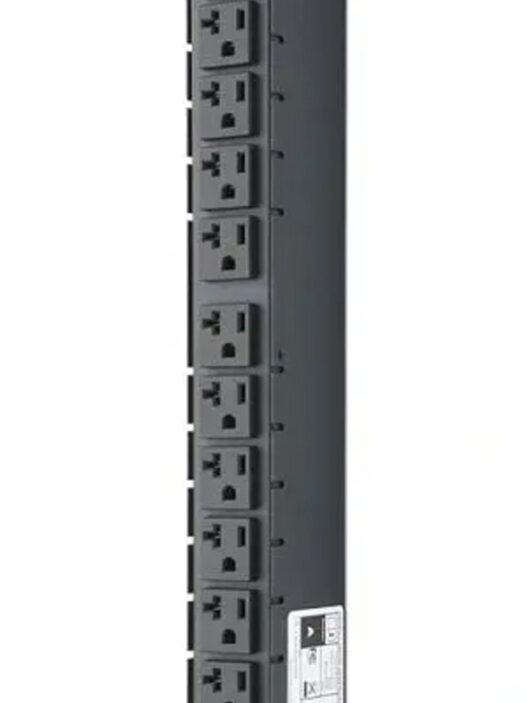In today’s fast-paced digital environment, maintaining seamless operations is critical for businesses and individuals alike. One essential component in ensuring this reliability is a Computer UPS (Uninterruptible Power Supply). A Computer UPS serves as a safeguard for your valuable IT hardware and computer systems, protecting them from power fluctuations and outages. In this post, we delve into the importance of UPS systems, their types, and how to choose the right one for your needs.
Understanding the Role of a Computer UPS
A Computer UPS is a backup power solution designed to deliver continuous power to connected devices in the event of interruptions. These interruptions can range from power outages and voltage dips to electrical surges. By bridging the gap between a power failure and the restoration of electricity, a UPS ensures that your IT hardware and other critical systems remain operational.
Benefits of a Computer UPS
- Protection Against Data Loss: Imagine losing unsaved work or critical business data because of an unexpected outage. A UPS provides ample time to save files and shut down devices safely.
- Hardware Longevity: Power fluctuations can damage sensitive computer hardware, including CPUs, hard drives, and motherboards. A UPS stabilizes power delivery, preventing wear and tear.
- Seamless Operations: Whether you’re running a home office or a data center, uninterrupted power ensures minimal downtime.
- Enhanced Productivity: With fewer disruptions, businesses can maintain steady productivity levels, safeguarding revenues and reputation.
Key Features of a Reliable Computer UPS
When exploring UPS options for your computer hardware, it’s crucial to consider the following features:
- Battery Backup: This determines how long your system can run during an outage.
- Surge Protection: Safeguards your IT hardware against electrical surges and spikes.
- Voltage Regulation: Maintains a consistent voltage level, protecting delicate components in your computer systems.
- Connectivity and Monitoring: Many modern UPS units come with software that allows you to monitor power usage and battery status in real-time.
By prioritizing these features, you can select a UPS that aligns with your specific power-supply needs.
Types of UPS Systems for Computer Hardware
UPS systems are categorized based on their functionality and intended applications. Understanding these types helps in choosing the right UPS for your IT hardware:
1. Standby UPS
The most basic type, Standby UPS systems are designed for home offices and personal use. They provide backup power during outages and offer basic surge protection. These are cost-effective solutions for protecting single computers or small-scale setups.
2. Line-Interactive UPS
Ideal for small to medium-sized businesses, Line-Interactive UPS systems are equipped with automatic voltage regulation. This ensures consistent power supply even during minor voltage fluctuations, making them a popular choice for safeguarding IT hardware.
3. Online or Double-Conversion UPS
Online UPS systems are designed for mission-critical applications. They provide the highest level of protection by continuously converting incoming AC power to DC and back to AC, ensuring a clean and stable power supply. These are ideal for data centers and enterprises relying on high-end computer hardware.
Choosing the Right UPS for Your Needs
Selecting the right UPS depends on several factors:
- Power Requirements: Calculate the total wattage of your connected devices. Choose a UPS with sufficient capacity to handle your power-supply demands.
- Runtime Needs: Determine how long you need your IT hardware to stay operational during an outage. Some UPS systems offer extended battery runtimes for critical systems.
- Number of Outlets: Ensure the UPS has enough outlets to accommodate all your devices, from computers to networking equipment.
- Budget: While premium UPS systems offer advanced features, there are affordable options available for basic requirements.
Common Applications of Computer UPS Systems
Computer UPS systems are versatile and used in various environments:
1. Home Offices
With the rise of remote work, home offices rely heavily on uninterrupted power for productivity. A UPS ensures your computer, modem, and other hardware remain functional during power cuts.
2. Businesses
From small startups to large corporations, businesses need UPS systems to protect servers, networking equipment, and workstations. This minimizes downtime and ensures smooth operations.
3. Data Centers
In data centers, a single power outage can result in significant data loss and financial consequences. High-capacity UPS systems provide critical power-supply support for servers and storage devices.
4. Educational Institutions
Schools and universities often use UPS systems to maintain operational continuity for computer labs, administrative systems, and digital learning platforms.
Maintaining Your Computer UPS for Longevity
Proper maintenance is essential to ensure the reliability of your UPS:
- Regular Battery Checks: Test the battery’s health periodically to avoid unexpected failures.
- Keep It Clean: Dust and debris can affect the efficiency of your UPS. Clean the unit regularly to maintain optimal performance.
- Replace Batteries as Needed: Most UPS batteries have a lifespan of 3-5 years. Replace them promptly to ensure uninterrupted protection.
- Monitor Power Loads: Avoid overloading the UPS, as it can reduce its effectiveness and lifespan.
Popular Brands Offering Computer UPS Systems
Several reputable brands offer high-quality UPS systems for IT hardware. Some of the leading names include:
- APC by Schneider Electric: Known for their reliable and durable UPS solutions.
- CyberPower: Offers a wide range of UPS systems catering to both home and business needs.
- Eaton: Renowned for innovative power-supply solutions and high-performance UPS systems.
- Vertiv: A trusted choice for data centers and critical infrastructure applications.
Future Trends in UPS Technology
As technology evolves, so do UPS systems. Here are some trends shaping the future of computer UPS:
- Lithium-Ion Batteries: Offering longer lifespans and faster charging times compared to traditional lead-acid batteries.
- Smart Connectivity: Advanced UPS units now feature IoT capabilities, allowing remote monitoring and management.
- Energy Efficiency: Newer models focus on reducing energy consumption while delivering consistent performance.
- Modular UPS Systems: These provide scalability, enabling businesses to expand their power-supply capacity as needed.
Final Thoughts: Investing in a Computer UPS
A Computer UPS is not just an optional accessory but a necessity for anyone relying on IT hardware. From protecting sensitive computer components to ensuring business continuity, the benefits of a UPS system are undeniable. By understanding your power requirements and choosing the right type of UPS, you can safeguard your computer hardware and maintain seamless operations, even in the face of power disruptions.
Whether you’re a professional working from home or a business managing extensive IT infrastructure, investing in a reliable UPS is a smart decision that pays off in peace of mind and productivity.









